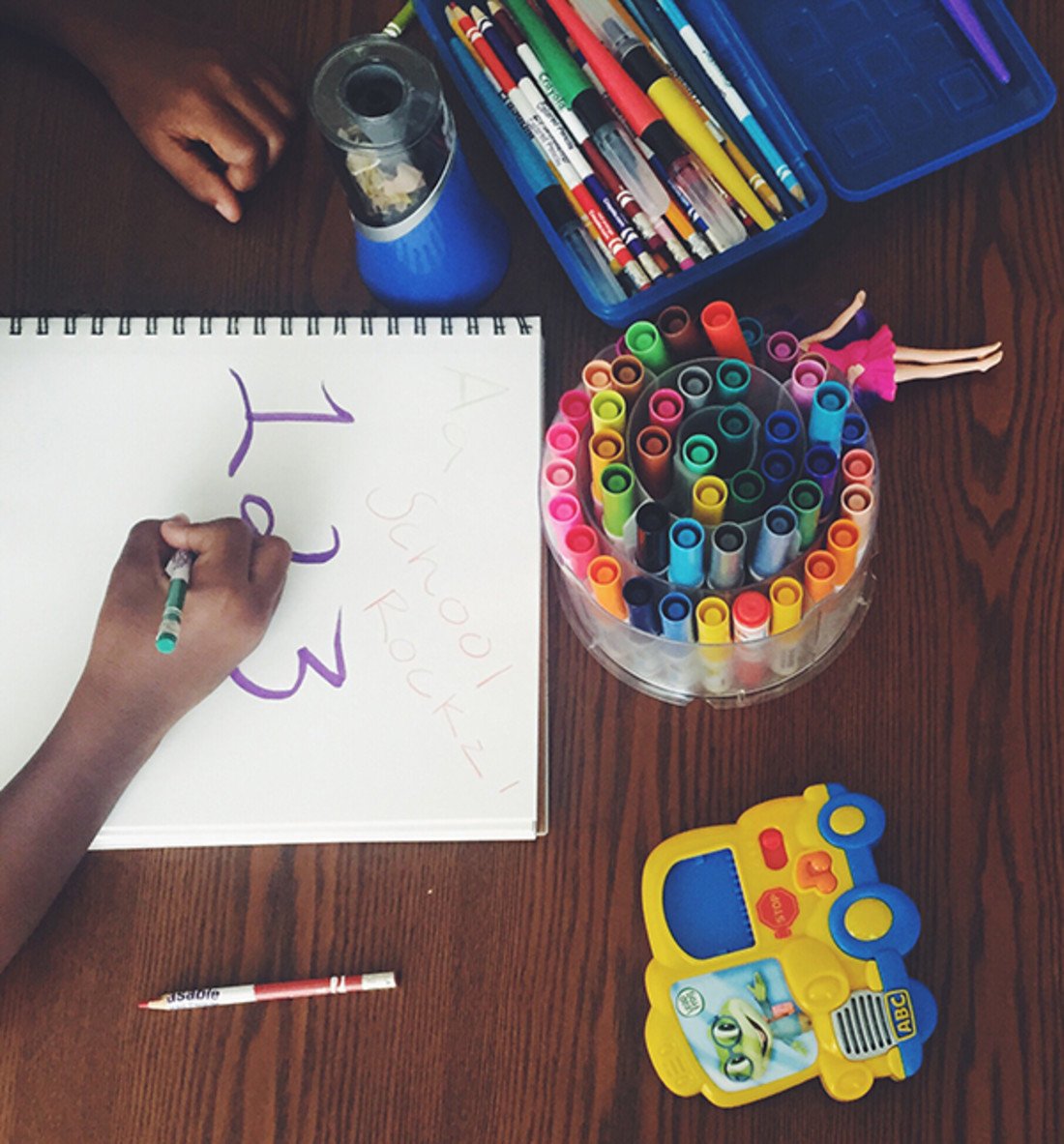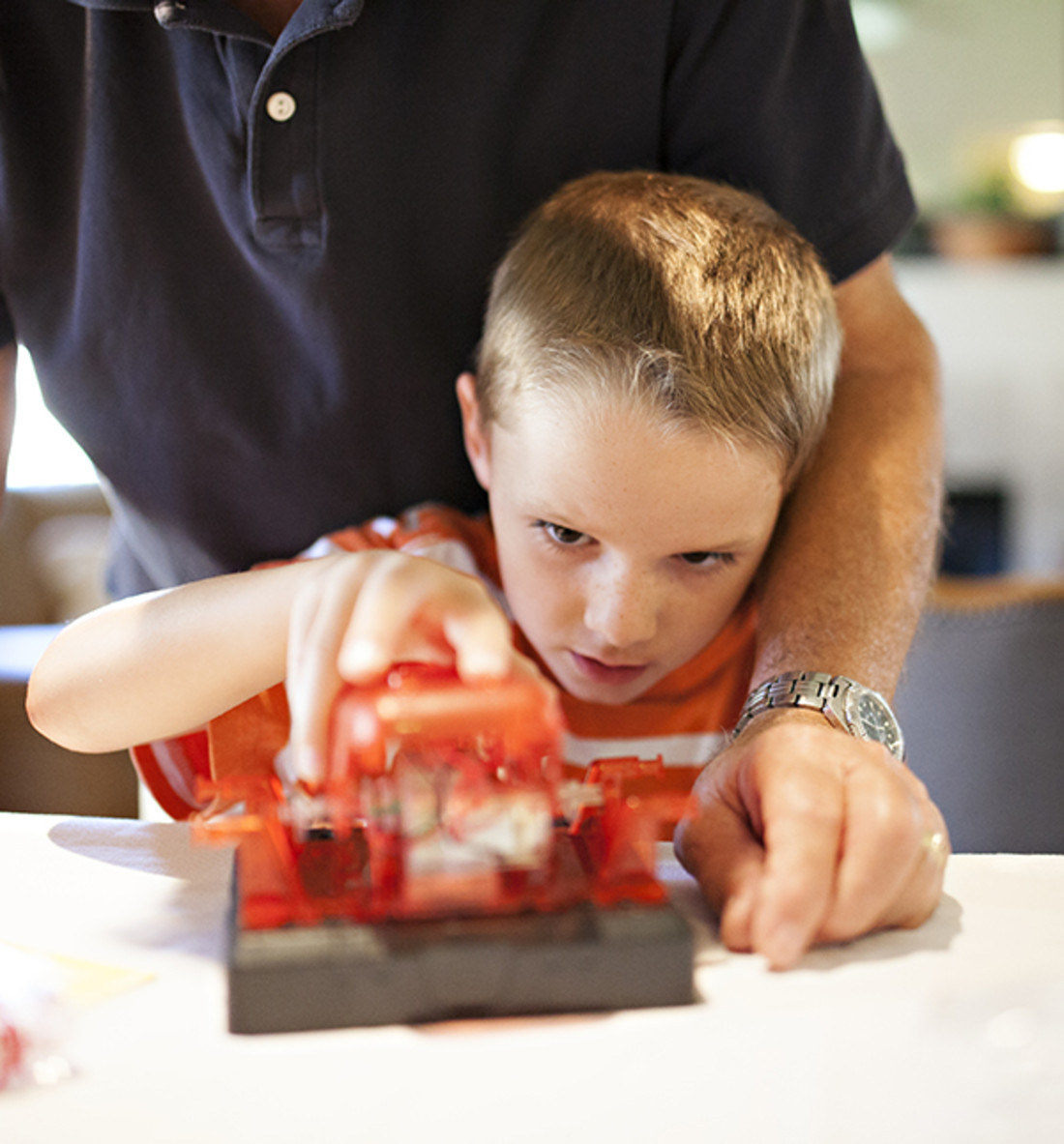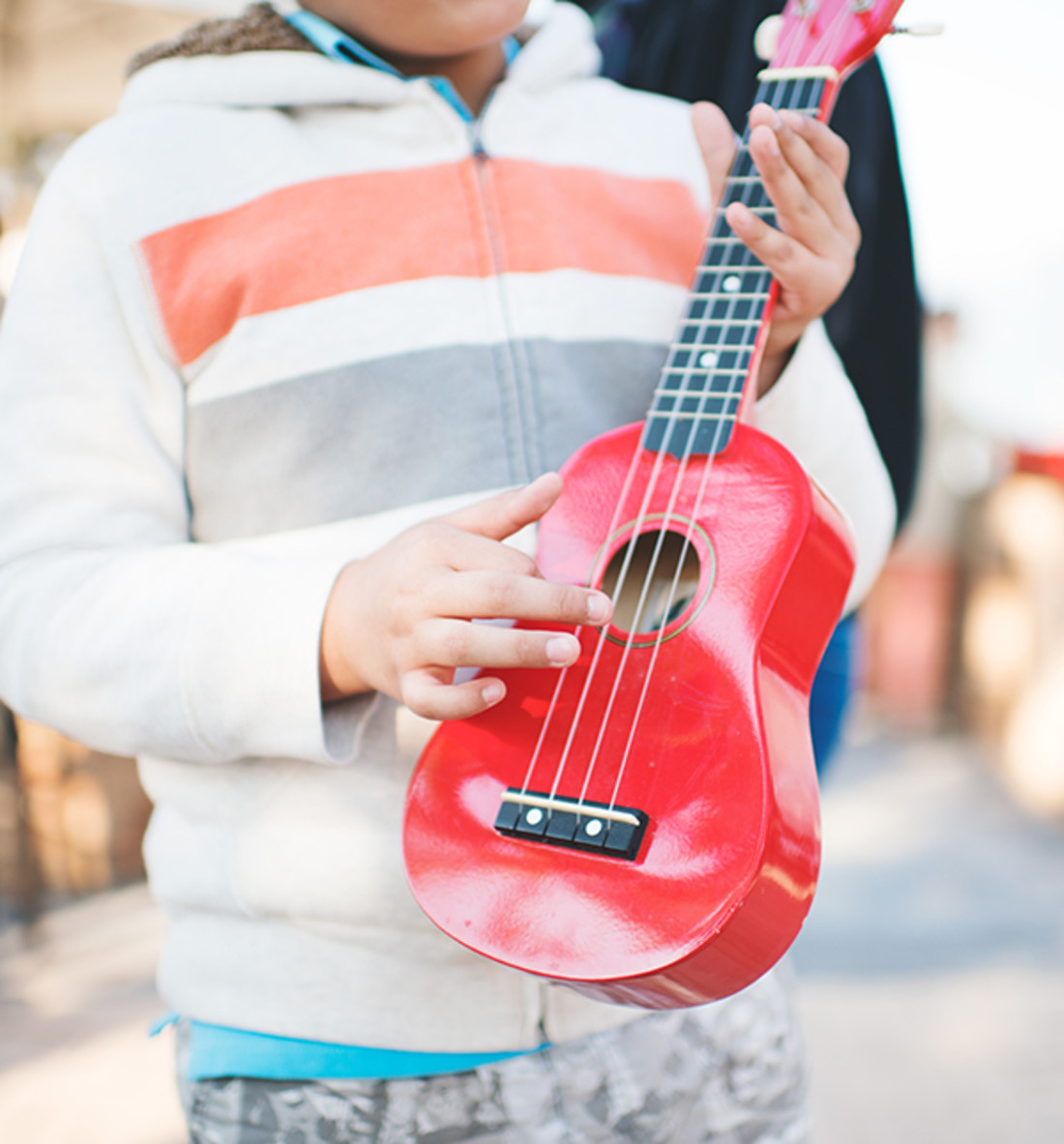

Best Year Ahead

There's no telling how many times you've probably started every school year thinking that this one will be better than the last. But having a successful year doesn't just happen. It requires a lot of preparation, hard work, perseverance and even some creative thinking to get there. Here are all the tips you'll need for the kids and you to feel as ready as you possibly can to get the school year off to the best possible start.
Dream On

Setting the groundwork for success starts with envisioning success, according to Michelle Korenfeld, an educator and author of several books on how to raise creative thinkers. She suggests having kids draw, write or even scribble how they imagine their class, their teachers, the studies or the homework will be like. As you talk about what they've created, ask them what they're excited about this year. Have them write that down as well and then post it where they'll be doing their homework to remind them of their "mission" or goal.
Deal With Dread

Equally important to discovering what excites your child this year is to find out what he or she is dreading. The reason why it's good to ask early is that the answer may surprise you, so it's good to have on your radar in case your child is showing signs of frustration out of the blue. Ask what they find difficult about what they're dreading and then help them look at it as a challenge and figure out creative solutions.
Scale Back Bedtime

Sleep-deprived children — or parents, for that matter — can rarely perform at their optimal potential. Since sleep patterns rarely change overnight, make it a gradual process by going to sleep and waking up 10 to 15 minutes earlier each night, says Crystal Horton, parent strategist and author of Stretch Marks. How soon you should start will depend on your own individual schedule. For example, if the kids have been waking up at 9 a.m. but need to now wake up at 6 a.m., it's ideal to start waking up 10 minutes earlier at least two weeks before school begins.
Homework Station

Creating a work space that your child enjoys being in will serve as good motivation to spend time there throughout the year, says Korenfeld. Have your kids decorate their learning space to their liking with homemade creations, such as with hand-drawn pictures or collages. And use it as an opportunity to get their space organized. Create a "homework basket" with sharpened pencils, pens, crayons, a ruler, dictionary and thesaurus so they won't have to waste time hunting down supplies every day.
Dressed for Success

In keeping with the creativity, let your kids showcase their personal style by picking out a back-to-school outfit, backpack and lunch box on their own. In addition to ramping up their anticipation for the first day of school, it's also bound to give them a boost of confidence. And when you lay out that outfit the night before, go ahead and pick out outfits for the rest of the week too (including any accessories) so that there's no question or arguing in the morning over what to wear. The same goes for getting that backpack and lunchbox ready to go the night before, too.
Review The Year's Material

If you already have the books for this school year, Korenfeld recommends having your kids take a look at them and come up with ten questions about the material. Hang onto the list and have your kids review it from time to time to time and mark them off as they begin to answer them. It serves as a great visual of how they're overcoming challenges as the year goes on. If they don't have access to their books yet, you can always go to CoreStandards.org, which provides an overview of key concepts by grade level.
Reflect on Each Day

Building on your successes and learning from failures is one key component for success in general. In order to do that, it's important to reflect on each day. "Help the kids make reflecting over the day a habit before going to sleep," says Korenfeld. "What went well? Teach them to give themselves an imaginary pat on the back for those successes. What went wrong? How can they be more organized tomorrow?"
Don't Fight It

When your child is resisting homework or refusing to get out of bed in the morning, Horton has learned that asking "Why not?" is far more effective than perpetually nagging and fighting with them. The reason they don't want to do their homework might be because they're having trouble with one of the concepts, which you can easily step in to help with or let the teacher know. And while going to school and doing homework are non-negotiable, maybe let them win some of the fights for their own good every so often. "If there's something my kids really don't want to do, like brush their teeth for example, I take a chance and let it go," says Horton. "One time, my daughter refused to brush her teeth. She went to school and her friend told her that her breath smelled like puke. She's never missed a day since."
Take Breaks

Everyone needs a break, especially after a grueling day. Korenfeld recommends allowing "creative breaks" during homework or studying, allowing your child to listen to a few songs or dance around. "Remember that creativity stifled turns into aggression," says Korenfeld. "If you take creative breaks, just state at what time we're going back to the homework." Also, let Saturday be a free day, suggests Horton. Allow the kids to wake up leisurely, watch cartoons or do whatever they choose, which can serve as a helpful tactic for compromise during the week. "If my son is in the mood to argue on a school day and not want to do anything, I'll remind him, 'That's what Saturday is for and you only have a few more days to go. And he'll usually get back into it,'" says Horton. She then suggests returning to your morning routine on Sunday so that Monday isn't a total shock.
Beyond the Books

When a certain concept isn't clicking, break away from the books, suggests Korenfeld. Hop on the Internet with your child and explore images or videos that might explain the concept better. Or do some hands-on learning, using Legos to better understand division or subtraction or using real money to count dollars and cents. This way, when your child returns to the topic in their homework or on a test, they'll be more inspired about it says Korenfeld.
Make Learning Relevant

At some point, every parent gets challenged with the inevitable "What's the point of this subject?" question. To prevent that from coming up, regularly ask your child what their homework is about and try to identify real-life applications, whether it be something that's in the news or something that's related to what they learned the previous week. "Try to make the learning material relevant," says Korenfeld. "When they start telling you about how this material is related to their real-life experiences, you'll know they're on the right track." And whenever you can relate what they're learning in school to their aspiring career path, that's even better, she says.
Tailored Learning

Just as each child is unique, so is his learning style. If you can pinpoint what it is and find ways to help your child's preferred learning style flourish, the easier the school year will be. Korenfeld provides a few guidelines in helping determine the type of learner your child is: 1. Do they love to study in a group or alone? 2. Are they divergent thinkers (meaning they're able to come up with many ideas)? If they are, help them to focus on one idea and develop it. 3. Are there certain times of day your child concentrates best? Try to maximize those times as best as you can.
Creative Expression

Extracurricular activities are vital for a child's development, creativity and overall well-being. "What is the one thing your kids love to do with endless intrinsic motivation? Make plans to develop that skill this year," says Korenfeld. "When children find expression to their unique creative gifts, they are better motivated to cope with curriculum." Whether it be music, dance, art or theater, encourage your child to follow and cultivate that budding passion.
Cultural Excursions

A successful year of growth shouldn't solely rely on the classroom. Look for other sources of mind nourishment, says Korenfeld, such as making plans to go see a play or visiting a museum once a month as a family. While still educational, these activities stimulate children's creative thinking by allowing them to break away from stress while letting in some inspiration.







